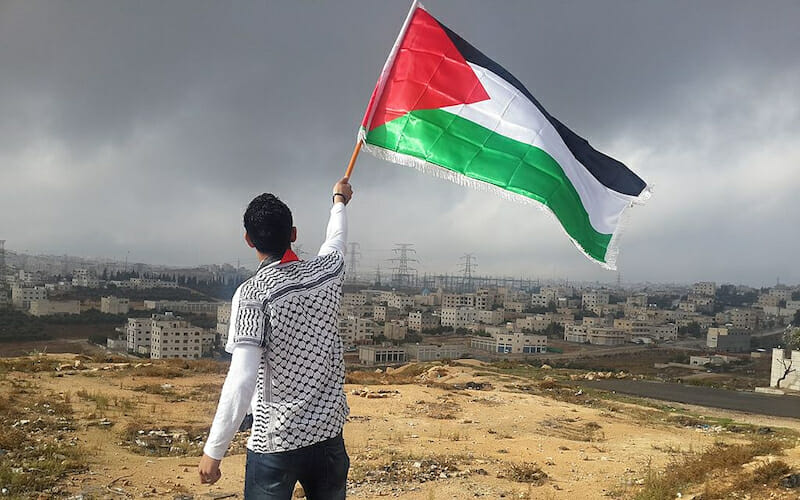
The Question of Palestine: What is Iran’s Role?
70 years after the Israeli-Palestinian conflict began in its current form following the 1948 exodus and what came to be known as Nakba, the international community still appears to be unable to find viable answers for many questions arising from this conflict.
Several UN resolutions, Security Council meetings, statements and peace-making committees, fact-finding missions and literally millions of newspaper articles, hundreds of TV documentaries and thousands of hours of negotiations have failed to bring an end to the humanitarian crisis in the offing in Palestine and the political dilemma between the Israelis and the Palestinians.
Israel is on a quest for recognition, consolidated power, security and increased military prowess, as despite being a UN member state, is not recognised by several countries, which are mostly Muslim and African nations. At the same time, there are campaigns of cultural and academic boycott against Israel across the world, in which prominent academic schools and universities or individuals eschew academic and scientific deals, agreements or joint activities with their Israeli counterparts.
Israel’s legitimacy crisis aside, this country is involved in a proxy conflict with Iran in Syria and Lebanon, and considers Iran’s nuclear programme a threat to its existence. That’s why reference to Iran’s nuclear activities never disappears from Prime Minister Benjamin Netanyahu’s speeches and statements. However far-fetched Iran’s nuclear threat, Netanyahu thinks Tehran’s nuclear programme is a unifying element to buy international support for Tel Aviv from Europe and the United States.
Palestine’s difficulties, on the other hand, are no secret to those following the developments closely. The Gaza Strip, often likened to the world’s biggest open-air prison is suffering from a perturbing economic crisis, unemployment and such basics as electricity and water which can even be critical issues themselves. Political activists, aid workers, humanitarian workers and journalists in Palestine and the Gaza Strip, as recorded by international organisations, are subject to maltreatment and arbitrary arrest by Israel, and sometimes, they are silently killed.
At the same time, Palestinian political parties fail to reach reconciliation and power games duplicate the suffering and pains of the civilian population.
Iran, as a Muslim-majority country, has frequently involved itself in the Israeli-Palestinian conflict as an advocate: an advocate for the suppressed Palestinians who are suffering at the hands of a “Zionist regime” and need support and backing by the Muslim world.
Since the Islamic Revolution of 1979, the cause of Palestine has been a catchphrase of the Iranian authorities and officials, and they’ve called for the “liberation” of Palestine and Gaza Strip and on different occasions. It’s not hidden to the global public that on a number of occasions, Iranian officials, including the late founder of Iran’s Revolution Ayatollah Khomeini and his successor Ayatollah Khamenei have called for the destruction of Israel as the only solution to the Israeli-Palestinian conflict. The controversies these inflammatory statements have created have been on the front-page of international dailies for a long time.
However, Iran’s engagement with the question of Palestine has serious flaws and is fundamentally defective and even insincere.
At the dawn of Iran’s revolution in 1979 which was a blend of spiritual, political and social movements combined with grievances against King Mohammad Reza Pahlavi’s increasingly oppressive regime, Ayatollah Khomeini, the leader of the revolution, named solidarity with the people of South Africa and Palestine as two major foreign policy battles of the Islamic Republic. South Africa at that time was under the rule of apartheid and Palestine was occupied by Israel. Ayatollah Khomeini wanted to unite his people behind two nations that were genuinely suffering and were even failing in their basic and most rudimentary living needs.
At that time, these two causes and advocacy for them were genuine and honest and Iran became one of the first countries to open a South African embassy in Tehran following the fall of apartheid regime under F.W. de Klerk. The Palestinian cause was the same: an earnest and healthy desire for a fellow Muslim nation to regain its rights that were being trampled upon.
However, with the demise of the Ayatollah, many things changed in Iran’s political landscape, and Iran’s approach to Palestine was one of them. Iran’s advocacy for Palestinian rights today is noticeably disingenuous and somewhat hypocritical. At the same time, the majority of Iranians have come to this understanding that Iran is getting involved in this conflict more than what is necessary. While the majority of Islamic nations that have the actual power and authority to do something for Palestine are idle, indifferent, clueless or unable to take practical and effective action, including Egypt and Jordan, there are many Iranians who say Iran’s approach has come to be seen as an interference in the internal affairs of Palestine and the Arab world, which is not favoured by Iran’s Arab neighbours.
This is partially true. The government of Iran is now using the Palestinian cause as an ideological battleground to fortify its regional presence and hegemony. In the near past, the former Iranian President Mahmoud Ahmadinejad went the extra mile to add Holocaust to the list of questions which Israel should respond to regarding its conduct of the Palestinians. Holocaust is a historically sensitive issue for the global Jewry and the first references in denial of the Holocaust by Ahmadinejad in the United Nations were widely and loudly condemned not only by the Jews but by the entire international community.
At the same time, there are many Iranians who have come to the conviction that Iran’s anxiety for other countries’ issues, including the Palestinian cause, has deviated its leaders and decision-makers from many domestic problems the country itself is grappling with, and from its foreign policy short-comings, including the decade-long controversy over its nuclear programme.
There’s one clear understanding, shared by many Iranians at home and abroad: Iran should comprehend what its national security priorities are and should not develop the reputation of a country interfering in the internal affairs of other countries. Ordinary Iranians on the streets will repeat this statement that the government of Iran should be clear about its “intentions” when its leaders talk about the cause of Palestine.
